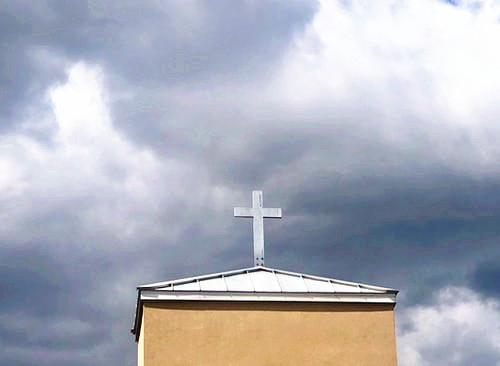There are two perspectives when discussing suffering, one is the specific suffering people are experiencing, and the other is the thought of suffering even though there is no suffering.
People who are experiencing suffering need comfort, need to find the cause of the suffering, and want to know how and when to end it. People who are not suffering care more about how to prevent suffering for themselves, and they want to find an excuse for not suffering.
The film "Back to 1942" presents the suffering of people who were displaced due to drought and locust plague in Henan Province, China. Obviously, the suffering in the film is not only caused by natural disasters, but also by the disintegration of society through bandits, upheaval and wars, and the government’s inability to aid those who suffer. The consequence of all this is the loss of control over the allocation of limited resources, which leads to such a disorder that vulnerable civilians who can't fight for resources can only be displaced.
Therefore, sometimes suffering is not caused by individuals but also by society. A strong government has the ability to control resources so as to maintain social order and to keep vulnerable individuals from suffering and dying.
This reminds me of what Jesus said. A sheep is missing. This sheep is a fragile individual. The shepherd has to give up the ninety-nine other sheep to find the missing one. Only when this lone sheep returns to the group can they all be secure.
However, as Christians, we often think about the relationship between God and suffering.
Among the fleeing refugees, Father Xiao An witnessed the tragic situation in which parents had to sell their children and wild dogs ate corpses. He couldn’t help asking: Where is God in all this suffering? Why doesn't God look after these poor creatures?
However, when confronted with Xiao An’s doubts, the foreign missionary, who is not affected by the suffering, hesitantly answers that suffering has nothing to do with God – it is the devil's trick. He says this while bandaging Xiao An’s wound.
If that is so, then Father Xiao An has the same question as those who are struggling with suffering – since God can't defeat the devil, what's the point of believing in God?
Although we can criticize the utilitarianism of this viewpoint and its rational point, we can't avoid this question, i.e., how does suffering happen and what is its relation with God?
People in distress try to connect suffering with God and pray to find another meaning of suffering through their faith, thus bringing comfort. People who are not suffering try to deny the relationship between suffering and God. Since goodness is God's nature, how can suffering be connected to God?
However, when we accept that suffering has nothing to do with God, we can never return to our faith in God. Since God can't defeat the devil who is behind suffering, what meaning is there in believing in God?
People in distress are experiencing pain. They are watching their families starve to death and their children being sold. They need relief from suffering and an ark to flee to, but at this time, if suffering has nothing to do with God, then one cannot count on the ark.
People who are not suffering always try their best to keep God out of the question of pain in order to preserve God's holiness. How can the consequences of holding this point explain suffering? Only the devil, who is isolated from God, can be sacrificed. This is equivalent to throwing out the baby with the bath water.
That foreign missionary, healthy and well, obviously has nothing to do with suffering. Although he may not have wine and meat for each meal, he doesn’t have to taste the tree bark as those who are starving. Yet, he can also enjoy delicious sweet potatoes – the suffering of the refugees is meaningless to him. What's the point of talking of God's goodness to the people in distress since God can't lift them out of their present hunger and despair? In suffering, religion actually plays no role. It can only divert people's attention, but it cannot eliminate suffering.
This reminds me of Job. When Job was suffering, his friends who came to see him did not comfort him, but were busy with discussing the relationship between God's justice and suffering while Job was bearing the suffering all along.
Suffering is always personal and cannot be understood by others if they have not experienced the same kind of suffering.
Back to the theme of this article, what is the relationship between God and suffering? For those who are suffering, the topic is really irrelevant. For those who are hungry, the greatest concern to them is food. At this time, whoever gives them food can be God. On the verge of death, we can't demand that an individual refuse life for an idea. At this point, all his choices are only concerned with personal survival.
For those who stand outside of suffering, instead of condemning those characters in the film for selling their children, and condemning them for losing their national integrity for a steamed bun and serve the invaders, I think we should stare at those who trade in humans, and the warlords and corrupt officials – why can't they donate food by giving those refugees even just a bowl of porridge?
When Mr. Fan finally flees to Luoyang, he is told that they are only counted as refugees when they return to their hometown, and since they are not refugees in Luoyang, they cannot enjoy relief in this famine-free area. When he loses his family while catching a train to take refuge in Shaanxi, the warlords block the railroad tracks. Now, is this disaster natural or man-made?
Just thinking about the suffering of an individual, whether it is related to God or the devil, we will have two Gods, the silent God who is present in suffering and the good God who stands outside of suffering.
These two Gods are of little significance to those who are suffering as He can neither eliminate suffering nor alleviate pain.
Suffering individuals doubt that the goodness of God is a normal manifestation of human nature. Even when Jesus was on the cross he questioned where God was.
Those who do not experience suffering, the kind of people who attribute suffering to the devil, are criticized by Jesus. Their view is that disaster occurs as a punishment for sins.
The film "1942" not only shows the suffering of the displaced refugees but also shows the national government, warlords, and Japanese invaders. The film not only shows us the tragedy of a newly married woman who was sold for rice on the second day of her marriage but also portrays the state of society and the international perspective that exists beyond the tragedy.
If we broaden our horizons, we may understand that the suffering experienced by individuals may not be caused by themselves. Very often, natural disasters do not necessarily bring suffering, but man-made disasters are the root of much suffering.
It is meaningless to discuss suffering with people who are suffering. Instead of telling them how righteous God is, it is better to demonstrate God’s love by giving them a piece of bread.
- Translated by Charlie Li












